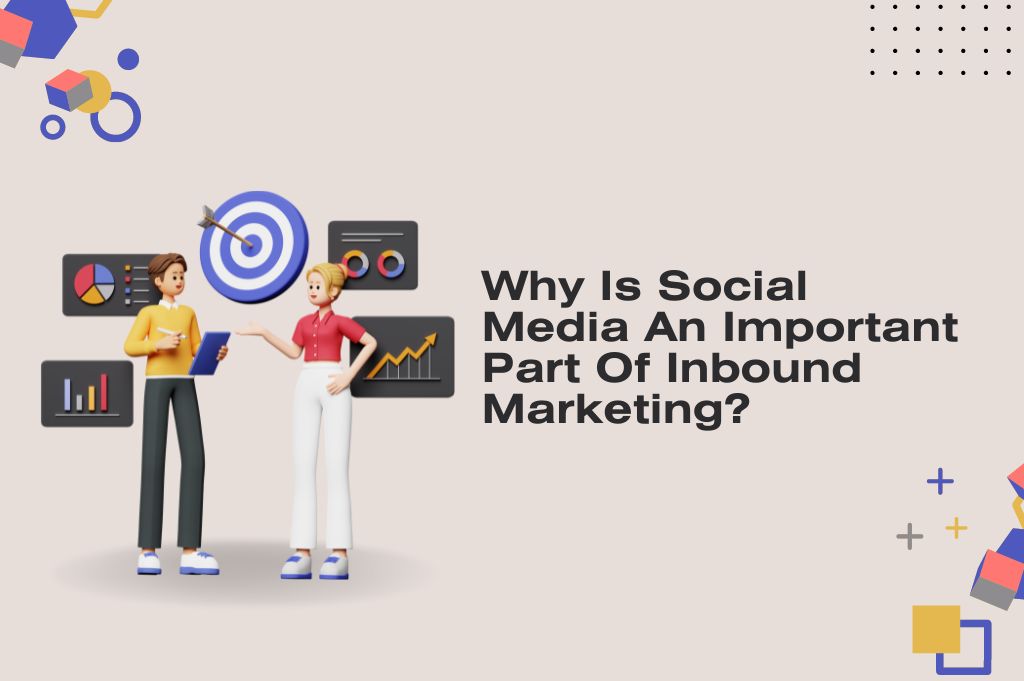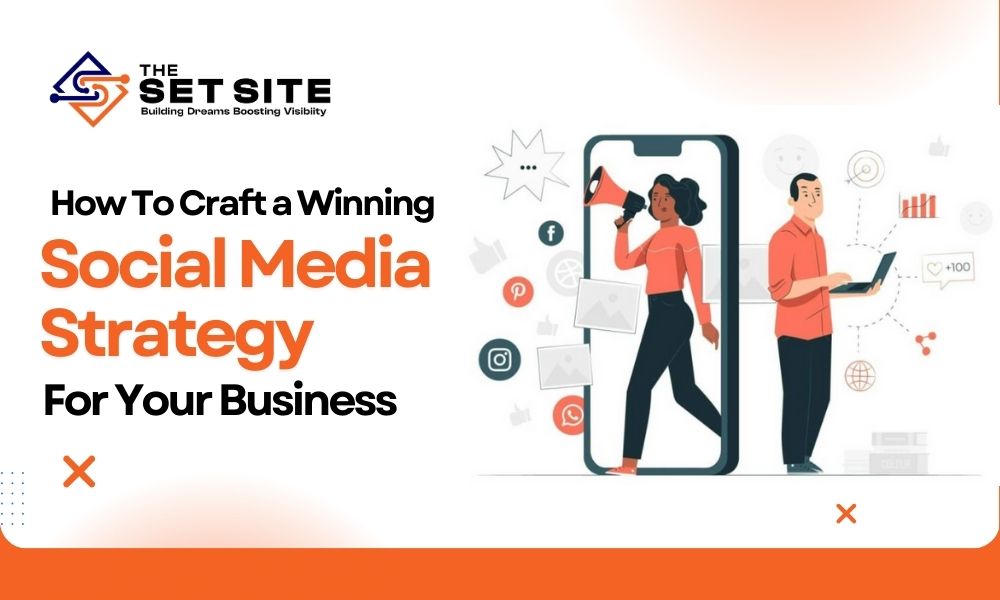Understanding the essence of inbound marketing has become crucial for businesses aiming to thrive in a competitive landscape. It is an approach that focuses on attracting potential customers organically by providing them with valuable content and building relationships. One significant factor that has revolutionized marketing strategies is the rise of social media with its far-reaching impact and immense popularity social media has become an indispensable tool for businesses seeking to engage convert and retain customers.
Integrating social media with inbound marketing offers numerous benefits including enhanced brand awareness, targeted traffic customer relationship building, expanded content reach, and successful crisis management.
Role of Social Media in Inbound Marketing
To comprehend the importance of social media in inbound marketing it is vital to define social media’s role within this strategy. Social media platforms serve as powerful channels for businesses to engage with their target audience, establish brand authority, and ultimately drive conversions. Leveraging social media for lead generation is a key aspect of inbound marketing, businesses can employ engaging content strategies to attract potential customers offering valuable insights educational materials, and entertaining content that resonates with their target audience.
Capturing leads through social media platforms is another integral part of the inbound marketing approach by utilizing lead generation forms on platforms like Facebook, Instagram, and LinkedIn. Businesses can seamlessly capture essential customer information which enables them to nurture these leads further and guide them through the conversion funnel.
1. Brand Awareness
One of the primary advantages of integrating social media with inbound marketing is the ability to uplift brand image. Establishing a strategic social media presence allows businesses to showcase their brand personality and ethos visual content such as high-quality images and videos plays a pivotal role in representing a cohesive brand identity. Consistency in visual elements and branding across social media platforms creates a lasting impression on potential customers.
Storytelling techniques also contribute to building brand awareness through social media by crafting compelling narratives that resonate with their target audience. Businesses can establish an emotional connection by sharing stories of brand origin customer success and community impact helps create a sense of authenticity and fosters trust.
2. Driving Targeted Traffic
Another crucial aspect of social media’s importance in inbound marketing is its ability to drive targeted traffic to a business’s website or landing pages. Effective utilization of search engine optimization techniques ensures increased visibility on social media platforms optimizing social media profiles for search engines including incorporating relevant keywords and clear descriptions can significantly enhance organic reach.
In addition to SEO the strategic use of hashtags allows businesses to tap into trending topics and conversations in their industry by identifying and using relevant hashtags. Businesses can ensure their content reaches audiences interested in their niche resulting in higher engagement and click-through rates.
3. Building Customer Relationship
Social media platforms provide a unique opportunity for businesses to personalize customer engagement with the ability to directly interact with customers. Businesses can establish trust and credibility prompt responsiveness and timely.
Customer support plays a significant role in building strong relationships on social media by addressing customer queries concerns and feedback in a timely and helpful manner. Businesses can demonstrate their commitment to providing exceptional customer service.
4. Expanding Content Reach
Integrating social media with inbound marketing allows businesses to maximize the reach of their content by including social sharing buttons on their website and blog businesses enable users to easily share their content across various social media platforms.
Crafted compelling headlines further increase click-through rates prompting users to engage with the content and share it with their networks encouraging user-generated content and collaborations is another effective strategy to expand content reach by involving their audience in content creation or partnering with influencers. Businesses can tap into the networks and followers of others to extend their brand’s visibility.
5. Monitoring and Measuring Social Media Impact
Utilizing analytics tools is critical when measuring the impact of social media within inbound marketing strategies through these tools businesses can track various social media marketing metrics including reach engagement and conversion rates by analyzing this data.
Businesses can gain insights into the effectiveness of their social media efforts and make informed decisions for continuous improvement. A B testing further allows businesses to experiment with different approaches refining their strategies based on data-driven insights.
6. Social Proof and Influencer Marketing
Leveraging social proof is an effective way to build brand credibility by showcasing positive reviews testimonials and user-generated content. Businesses can enhance trust among their target audience collaborating with influencers also contributes to increased brand visibility identifying industry-relevant influencers and partnering with them enables businesses to tap into their follower’s trust and loyalty.
7. Social Media Advertising and Retargeting
Social media advertising plays a vital role in targeted campaigns within inbound marketing by segmenting audiences based on demographics interests and behaviors. Businesses can deliver personalized ad campaigns this approach ensures that the right message reaches the right audience increasing the likelihood of conversions.
Retargeting tactics further nurture leads generated through inbound marketing efforts by tracking user behavior and showing tailored ads to those who have previously engaged with a business’s content. Retargeting helps keep the brand top of mind and encourages potential customers to take the desired action.
8. Crisis Management and Reputation Building
Social media platforms are invaluable when it comes to crisis management and reputation building in times of negative feedback or crises. Businesses can mitigate their impact by responding quickly and transparently on social media. This demonstrates accountability and a commitment to resolving issues promptly proactive reputation management strategies such as sharing positive customer experiences and addressing concerns publicly also help in building a positive brand image.
Also Read: How to Design a Responsive Website
The future of social media in inbound marketing
Social media continues to evolve businesses that must adapt and innovate their strategies for future success. Emerging trends and technologies shape the landscape such as the increasing importance of video content and live streaming videos have proven to be engaging and shareable and live streaming allows for real-time interactions with the audience.
Additionally, the power of artificial intelligence AI and chatbots will provide businesses with enhanced customer service and personalized experiences.
Frequently Asked Questions
1. How can social media help attract leads to our business?
With the right content strategies and lead-generation tactics, businesses can leverage social media to attract potential customers with engaging content.
2. How can businesses effectively measure their social media impact?
Utilizing analytics tools allows businesses to track various social media metrics including reach engagement and conversion rates. Measuring these metrics helps businesses gain insights into the effectiveness of their social media efforts allowing them to adjust their strategies accordingly.
3. What are the key elements of a successful influencer marketing campaign?
Successful influencer marketing campaigns involve identifying and partnering with industry relevant influencers who have a trusted following creating mutually beneficial relationships with influencers and leveraging their influence to promote a business’s brand or products is crucial for success.
4. How can social media aid in crisis management and reputation building?
Social media serves as a critical tool for addressing negative feedback and managing crises promptly and transparently. Quick responses, transparent communication and proactive reputation management strategies help turn challenges into brand building opportunities.
5. What technological advancements should businesses be prepared for when it comes to social media and inbound marketing?
Businesses should be prepared for the increasing importance of video content and live streaming in social media. AI and chatbots will also help enhance customer service and create personalized experiences in the future.
Conclusions
Social media has become an essential component of inbound marketing due to its ability to amplify brand awareness, drive targeted traffic, build customer relationships, expand content reach, enable monitoring, and measure leverage social proof and influencer.
Marketing utilizes social media advertising and retargeting handles crisis management and reputation building and adapts to future trends and technologies. Businesses that integrate social media effectively into their inbound marketing strategies are undoubtedly poised for success.







